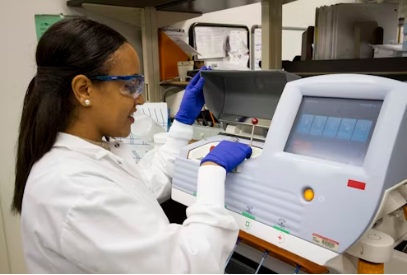Dialysis technicians play a crucial role in the healthcare system, assisting patients with kidney failure by operating dialysis machines and monitoring their vital signs. This comprehensive guide will delve into the responsibilities, skills, and salary prospects of dialysis technicians, providing valuable insights for those considering a career in this field.
Understanding the Role of a Dialysis Technician
Dialysis technicians, also known as hemodialysis or renal dialysis technicians, are responsible for operating dialysis equipment and providing direct patient care during dialysis treatments. These treatments are vital for individuals with kidney failure, as they help remove waste products and excess fluids from the blood when the kidneys are no longer able to perform this function effectively.
Navigating Patient Care and Equipment Operation
In addition to operating dialysis machines, dialysis technicians are tasked with monitoring patients throughout their treatment sessions, ensuring their comfort and safety. They must also troubleshoot any technical issues that may arise with the equipment, maintaining a calm and efficient demeanor to provide uninterrupted care to patients.
Essential Skills for Success
Becoming a successful dialysis technician requires a unique blend of technical expertise, interpersonal skills, and compassion for patients. Let’s explore some of the key skills necessary for excelling in this role:
1. Medical Knowledge
- Dialysis technicians must have a solid understanding of renal anatomy and physiology, as well as the principles of hemodialysis treatment.
2. Technical Proficiency
- Proficiency in operating dialysis machines and other medical equipment is essential for ensuring accurate and effective treatment delivery.
3. Attention to Detail
- Dialysis technicians must be meticulous in their observations, noting any changes in patients’ vital signs or symptoms during treatment.
4. Communication Skills
- Effective communication with patients, families, and healthcare team members is critical for providing optimal care and support.
5. Compassion and Empathy
- Dealing with patients who are often facing serious health challenges requires a compassionate and empathetic approach, helping to alleviate fears and anxieties.
6. Problem-Solving Abilities
- The ability to quickly identify and address issues during dialysis treatments is essential for ensuring patient safety and well-being.
Exploring Salary Expectations
While salaries for dialysis technicians can vary based on factors such as experience, location, and employer, the median annual wage for this profession is around $40,000 in the United States. However, experienced technicians or those working in specialized settings may earn significantly more.
Career Outlook and Advancement Opportunities
The demand for dialysis technicians is expected to grow in the coming years, driven by an aging population and an increase in chronic kidney disease cases. Additionally, as technology advances, there may be opportunities for technicians to specialize in areas such as home dialysis or pediatric care.
FAQs
What education is required to become a dialysis technician? To become a dialysis technician, individuals typically need a high school diploma or equivalent. They may also complete a training program in hemodialysis technology, which can vary in length from several months to a year.
Is certification necessary for dialysis technicians? While certification is not always required, many employers prefer to hire dialysis technicians who have obtained certification through organizations such as the Nephrology Nursing Certification Commission or the Board of Nephrology Examiners Nursing and Technology.
What is a typical work environment for dialysis technicians? Dialysis technicians may work in hospitals, outpatient clinics, or dialysis centers. They often spend long hours on their feet and may need to lift or move patients as part of their duties.
How can dialysis technicians advance in their careers? Experienced dialysis technicians may have opportunities for career advancement, such as becoming lead technicians, trainers, or supervisors. Some may also choose to further their education and pursue roles as registered nurses or nurse practitioners specializing in nephrology.
What are the common challenges faced by dialysis technicians? Dialysis technicians may encounter challenges such as managing patient anxiety or discomfort during treatments, dealing with technical issues with dialysis equipment, and ensuring adherence to infection control protocols.
What personal qualities are important for success as a dialysis technician? In addition to technical skills, successful dialysis technicians possess qualities such as patience, empathy, adaptability, and a commitment to providing high-quality patient care.
Conclusion
In conclusion, the role of a dialysis technician is both challenging and rewarding, offering the opportunity to make a meaningful difference in the lives of patients with kidney failure. By possessing the necessary skills, compassion, and dedication, individuals can embark on a fulfilling career path in this vital healthcare profession.
